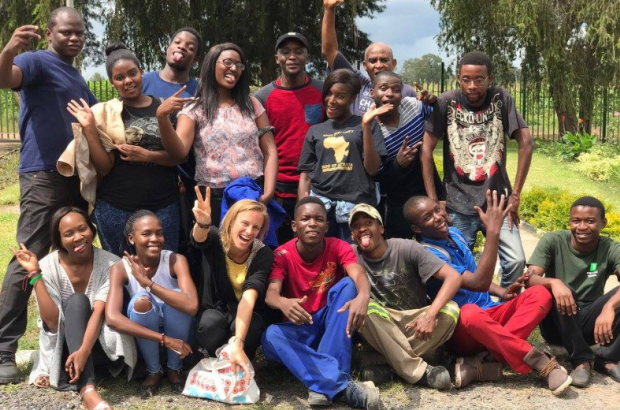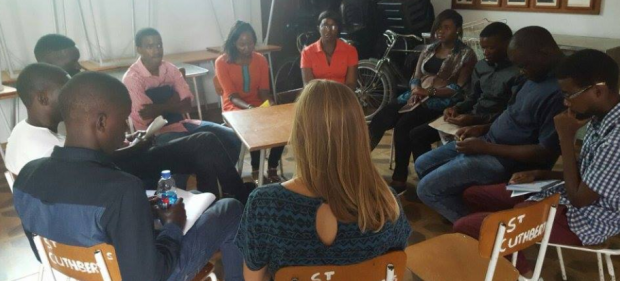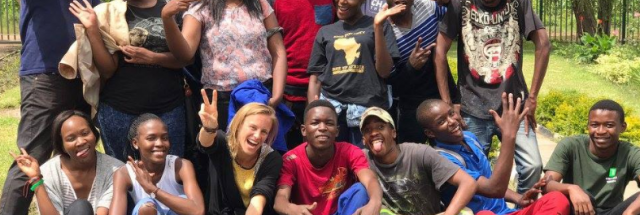IofC/Moral Re-Armament build teamwork in Zimbabwe with a national youth conference

Initiatives of Change (IofC)/Moral Re-Armament (MRA) Zimbabwe recently held its first national youth conference in Gweru on 1-5 February with the aim to mobilize and empower young people, and ‘move from a group to a team’. Young people came together to learn more deeply about Initiatives of Change, to build their skills, and to strengthen friendships with the intention of working together for a just, peaceful and sustainable Zimbabwe. The conference was created and delivered by youth for youth.
The first three days of the conference were a workshop where participants learned about IofC/MRA principles, leadership and forgiveness, conflict resolution, and skill building. Then the group spent a day conducting community outreach with a partnering NGO and putting their teambuilding and service skills to use.
Guided by IofC/MRA elders, the youth have built a Tippy Tap (an ingenious device that is used around the world to promote hand-washing, good health and hygiene), painted classrooms, helped with gardening and spent a lot of time playing with the children! Since the conference, they have come up with further ideas to implement over the coming months at the school, such as an expanded water system for the Tippy Tap.
IofC/MRA has been active in Zimbabwe for several decades. Through key members such as Alec Smith, Ian Smith’s son who was politically opposed to his father, MRA flourished in Rhodesia. In the 1970s they launched a variety of initiatives aimed at ‘building bridges of reconciliation’ and finding a solution to the war that was devastating the country. MRA played a pivotal role in the peaceful changeover from Ian Smith to Robert Mugabe in 1980.

While IofC/MRA has experienced many struggles since then, the committed team have pulled through. To this day groups meet in Harare and Gweru to bring transformation to individuals and their communities. Their two primary programmes are Creators of Peace and the Youth Programme, which has been running primarily to deliver leadership trainings in schools since 1985. The Youth Programme delivers workshops, school leadership trainings and encourages active citizenship through community outreach.
The programme prioritizes the needs of young people with respect to education, well-being, economic participation and social cohesion. It explores individual change and creates safe spaces for young people to have honest and open dialogues about issues and topics that lead to positive changes in one’s life, families and communities.


